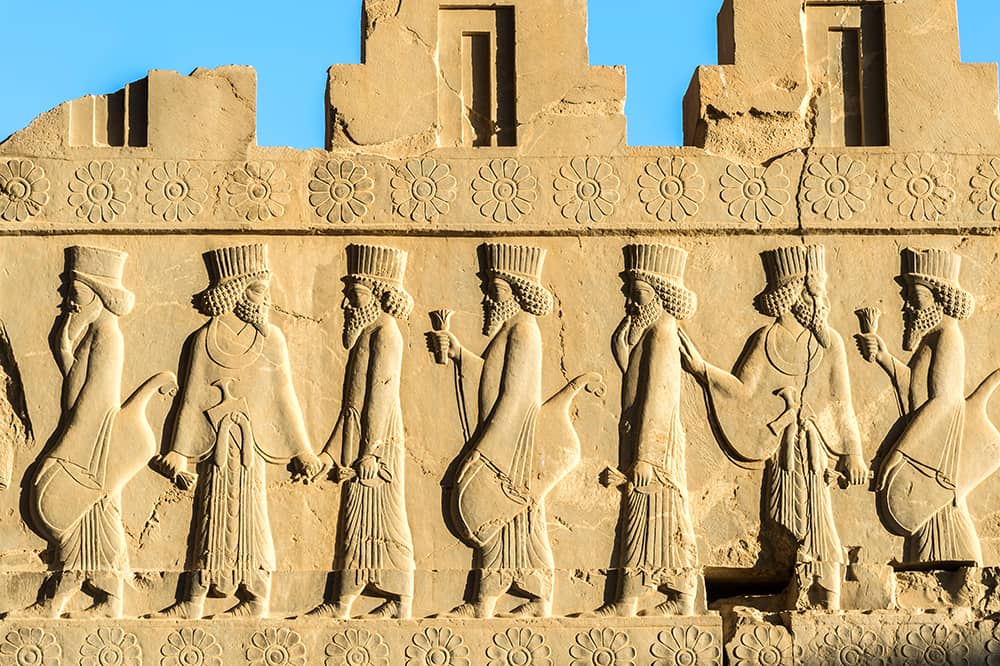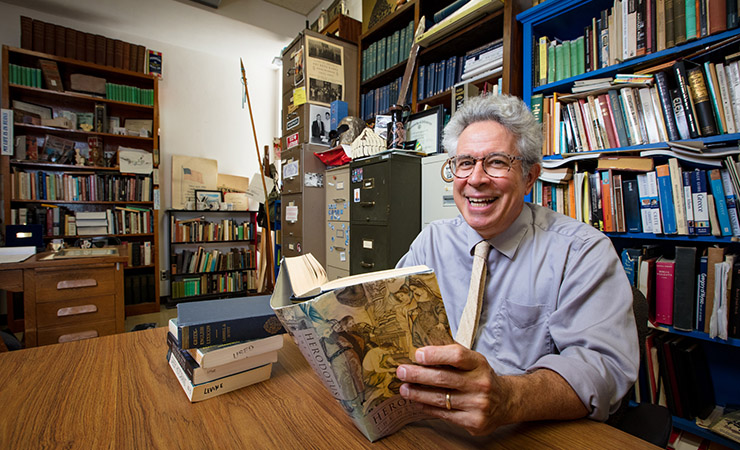Custom Is King: Africans, Asians, and Greeks in Herodotus’ Histories

RETRO READING: HERODOTUS/HNRC 301VH-004 (11309)
TUESDAYS, 5:00-6:15 p.m., SPRING2023
No application is required for this course.
Note: This is a one-credit course. Only register for one hour of course credit.
Questions? Contact John Treat .
Herodotus, the “Father of History” did not only record details of the Greco-Persian battles at Marathon, Thermopylae, Salamis and Plataea, but also has left detailed records of the customs, beliefs and practices of dozens of ancient cultures. These include Arabians, Babylonians, Egyptians, Lydians, Medes, Persians, Massagetae, Indians, Libyans, Amazons, Scythians, and more.
In addition, the Histories are filled with historical details of the histories of the city states of Athens and Sparta, as well as Corinth and others. Herodotus deals with important men and women, including kings and queens, and both male and female military leaders. But this is not a history only of the elites, but of humans in all walks of life. Herodotus describes many cultures’ religions, sexual practices, social norms, body modifications, engineering feats, diet, military equipment, scientific accomplishments, architecture, clothing, use of natural resources and adaptations to the environment. He describes flora and fauna, both real and legendary.
As part of his design, Herodotus makes a point of showing the social and political differences between Greeks and non-Greeks, especially in regard to the Persians. His intention appears to be to focus on why most of the Greek states would not submit to the sovereignty of the Persian empire.
Thankfully, Herodotus is a consummate storyteller. His accounts make most pleasant reading: They are witty, engaging and often humorous. We are attracted to his narratives not only because of their innate appeal, but also because of the power of the author’s literary skill. Plus, he discusses his sources, as a good historian must.
In short, Herodotus’ Histories offer insight into the diverse ancient cultures of the 6th and 5th centuries BCE, from the great Asian empires of Babylon and Persia, to the Egyptian culture along the Nile, from the steppes of Asia to the jungles of Ethiopia, from the dry deserts of Libya to the gold-bearing sands of India and the pleasant smelling Arabian peninsula.
In this course, students will read Herodotus’ Histories one book at a time and discuss cultural information in each. The professor will assign certain topics to the students to prepare to discuss on class. Students will compare and contrast cultural information from different regions and ask why the author chooses to concentrate on certain topics in the various countries. Did this depend on his own interests? The demands of his audience? The state of his sources? At the end of the semester, students will report on any aspect of the course that they choose.
About Daniel B. Levine

Daniel B. Levine (B.A. Minnesota 1975; Ph.D. Cincinnati 1980) is University Professor of classical studies in the Department of World Languages, Literatures and Cultures at the University of Arkansas, where he has taught classical studies, Greek and Latin since 1980. His recent publications include essays on Greek comedy, tragedy, and epic poetry. He has led seventeen study tours in Greece: for the University of Arkansas, the Virgilian Society, and the American School of Classical Studies in Athens.